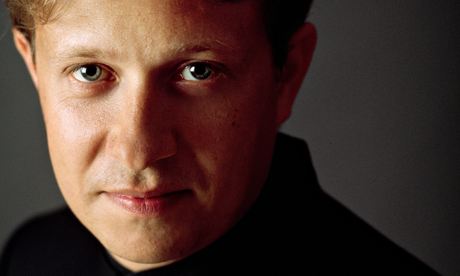
As with the proverbial buses, you wait a long while for a Poulenc opera and then two come along at once. Les dialogues des Carmélites returns to Covent Garden this week after an absence of more than 30 years. And here, almost as an amuse-bouche for the later work's high seriousness, was a rare concert staging of its predecessor, Les mamelles de Tirésias, a work whose ebullient charms and cross-dressing craziness never entirely eclipse its darker wartime origins.
This was preceded, in a somewhat incongruous piece of programming, by Fauré's Requiem, in the expanded and fully orchestrated concert edition of 1900 with which those who are devoted to the work in its various smaller-scale versions always struggle. That scepticism was reinforced by this unatmospheric rendering under the Brussels Monnaie opera chief conductor, Ludovic Morlot, occasionally somewhat carelessly executed by the BBC orchestra, which confirmed the belief that Fauré's work loses much of its focus in the larger form. Jean-François Lapointe, in the baritone's Libera Me, seemed strangely disengaged, though his fellow Canadian Hélène Guilmette's bright soprano was in radiant form in the Pie Jesu.
All was more than forgiven, though, as soon as everyone returned for the Poulenc opera in the second half. This time Morlot was absolutely sure-footed, conjuring a wonderful palette of colour from the BBC orchestra in a score that dazzles with echoes of composers from Offenbach to Stravinsky and yet manages to be unmistakably and idiomatically Poulenc from start to finish. Guilmette sang with deliciously authentic francophone verve, while coping with everything that Apollinaire's surrealist text and Poulenc's crisp writing threw at her, including a newly topical appearance as a bearded lady. Lapointe was incisive and stylish as the father who gives birth to thousands of babies, a selection of whom bawled boisterously at him from the chorus, while capturing the brittle sadness that is never far away in Poulenc. A succession of smaller roles were all carried off with the same gusto that typified the whole piece.

